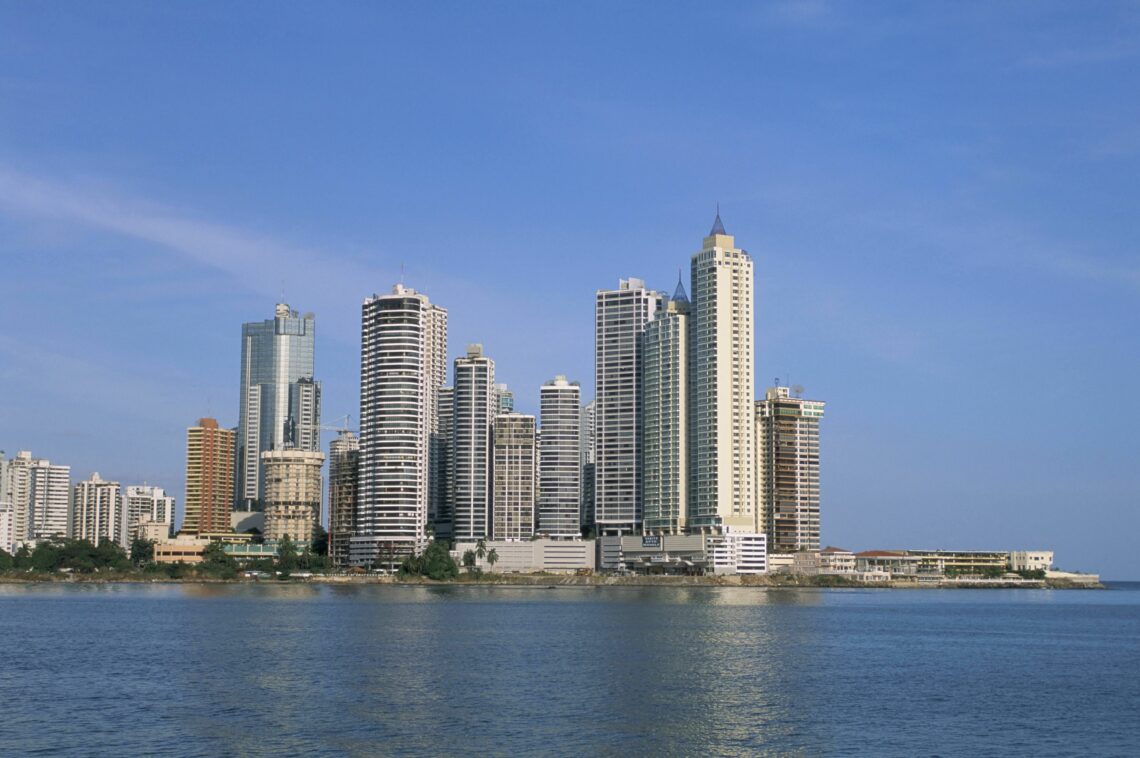The OECD heads down the wrong path
The mission of the OECD was to support economic growth by promoting free trade. But over the last 30 years, it seems to have lost sight of its vision: it now focuses on expanding the reach of its member governments, especially when it comes to taxation.

In a nutshell
- The OECD did beneficial work easing international business
- Since the 1980s, it has focused more on eliminating tax havens
- Recently, it has tried to stamp out tax competition
The Organization for Economic Cooperation and Development (OECD) was established in 1961 to “promote policies designed to achieve the highest sustainable economic growth,” fiscal sustainability and global development. The founding work of the OECD promoted the benefits of free trade, low, well-designed taxes and other economic freedoms. Over time, the organization’s policy work has strayed from its founding mission. Nowhere is this clearer than in the OECD’s tax policy programs.
The core of the early OECD work focused on lowering business taxes by coordinating a mechanism to end double taxation, thus increasing economic growth and international development. Since the 1980s, a more dominant political agenda – often pushed by individual member states – has increasingly overshadowed this important work. The development is incompatible with the OECD’s founding principles and the promotion of economic growth.
Early OECD tax work
The OECD began its tax work by providing a forum and structure to decrease the multiple taxation of corporate profits. As global trade increased through the 1950s, various countries would claim taxing rights on profits attached to business supply chains spread around the world. Double taxation reduces international trade by making it less profitable for businesses to operate in more than one country. In 1963, the OECD published its Draft Double Taxation Convention on Income and Capital, an ambitious model treaty to provide a framework for countries to resolve this problem.
Much of the OECD’s influence is rooted in the almost universal use of its Model Tax Convention in negotiating treaties.
Today, much of the OECD’s influence is rooted in the almost universal use of its Model Tax Convention in negotiating bilateral and multilateral treaties. The document outlines resolution mechanisms for the inevitable discrepancies between international tax systems to the benefit of businesses and governments. The reduction of double taxation also boosts economic cooperation and thus fits within the OECD’s mission to “contribute to the expansion of world trade.”
Tax competition bogeyman
The growth of global trade and more sophisticated financial products in the late 1970s and 1980s gave rise to an increase in tax arbitrage by firms and tax competition between governments. In 1981, a United States Treasury report titled Tax Havens and Their Use by United States Taxpayers, commonly referred to as the Gordon Report, started a domestic and international discussion about tax coordination and the perceived problem of tax base erosion.
Given different tax codes across countries, it should be expected that businesses use these differences legally to pay less tax. Firms that are successful at minimizing their tax burden across two or more countries often find a way to exempt some of their profits from taxation. This has been termed “double non-taxation” or “nowhere income.”

Over the last three decades, the OECD has become preoccupied with eliminating legal means of lowering tax burdens. In 1998, the organization released a report on international tax competition that marked a distinct shift from its previous methods of articulating problems and recommending procedures for states to work out solutions to differences in tax systems. The report, titled Harmful Tax Competition, concludes that taxes should not be used to attract business investments, and that tax competition “may hamper the application of progressive tax rates and the achievement of redistributive goals.”
Following the 1998 report, the OECD has increasingly turned to projects meant to blacklist so-called tax havens and popularize the idea of harmful tax competition.
Recent work
In 2012, the OECD began work on a comprehensive project to bring about “fundamental changes” and “new international standards” to address what it termed base erosion and profit shifting (BEPS). The project included a 15-point action plan to address the growing concern that multinational corporations dodge large tax payments and erode domestic tax bases. The report did not show any precipitous drop in corporate tax collection, either as a share of gross domestic product (GDP) or as a share of total revenue. To this day, there is little compelling evidence that BEPS deprives states of existing revenue. However, tax competition is likely keeping governments from relying on the corporate income tax to a greater degree.
The BEPS work from the OECD claims that low- or no-tax territories can infringe on other countries’ sovereign right to set taxes at independent levels. The report argues that tax competition “would ultimately drive applicable tax rates on certain mobile sources of income to zero for all countries, whether or not this was the tax policy a country wished to pursue.” While this claim is likely overstated, competition on all margins can constrain a government’s ability to pursue policies that would drive businesses or people from its borders.
The type of tax competition the OECD is trying to stop is a fundamental characteristic of jurisdictional diversity.
The type of tax competition the OECD is trying to stop today is a fundamental characteristic of jurisdictional diversity. Countries compete on innumerable margins for capital investments. The U.S. offers a highly educated workforce and modern infrastructure. Developing countries compete by having less expensive labor and often less intrusive regulations. Whether a business moves between tax jurisdictions for a better-educated labor force or a more friendly tax code, the effect is the same. The tax base shrinks in one jurisdiction and expands in another.
Attempts to stamp out this competition or comparative advantage between countries have appeared most recently in the OECD’s current work program on digital taxation. The current proposal has two pillars. Pillar one includes a new method of allocating a portion of consumer-facing corporate profits based largely on sales, rather than business location. This would abandon the corporate tax’s connection to physical location and thus undermine the incentive to move based on tax policy. Pillar two proposes changes that work toward an international minimum tax on corporate profits. The OECD proposals would be a direct assault on tax competition, with long-lasting effects that could lead to higher and less efficient business taxes the world over.
OECD as cartel
The digital tax work program is the OECD’s most recent attempt to protect high-tax regimes from tax competition. Law professor Andrew Morriss and economist Lotta Moberg in their article Cartelizing Taxes characterize the OECD campaign against tax competition as an effort to establish an international tax cartel. This would benefit high-tax welfare states that wish to escape the pressures of competition from smaller and leaner governments. The OECD has been captured by politics and is no longer guided by its original mission to increase economic prosperity, but instead focuses on expanding the reach of its member governments.
The OECD has developed an image of technocratic expertise as a result of its historical role as international mediator and provider of often excellent economic analysis. The organization has used this reputation to expand its power and scope of responsibilities. By centralizing and harmonizing the rules of tax systems for countries around the world, the OECD can continue to raise its profile and power in shaping international relations. Given the long history of bureaucratic mission creep, we should expect the OECD to continue to work to expand its authority to new and emerging areas of policymaking, abandoning the constraints of its founding mission.







